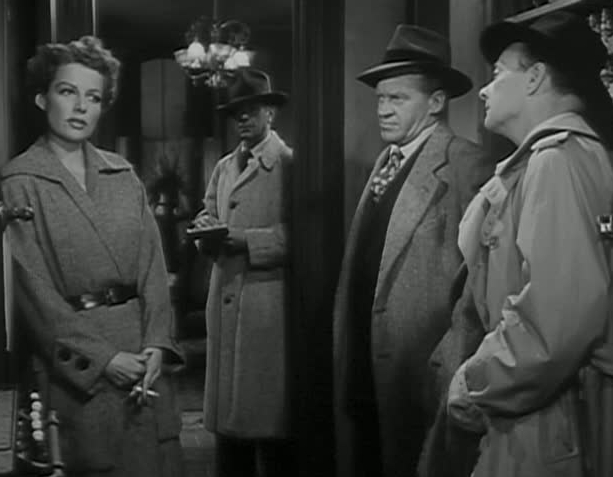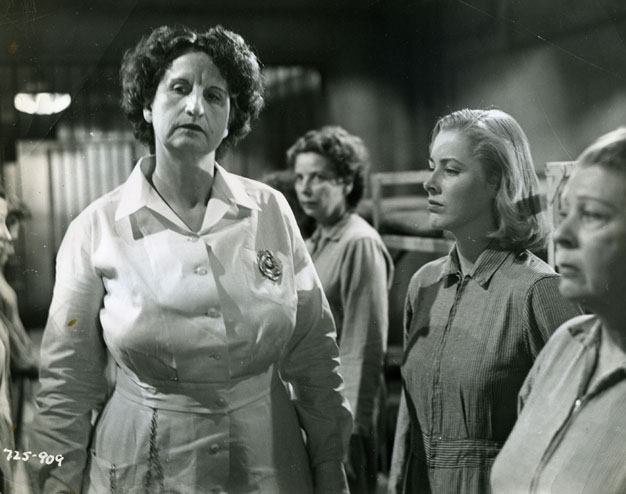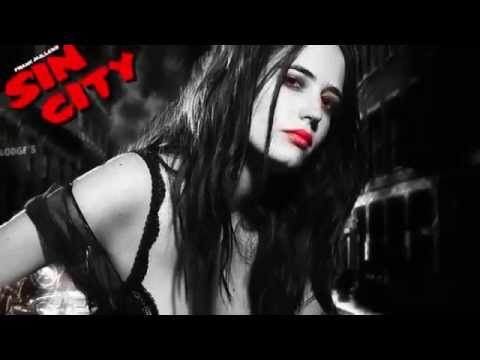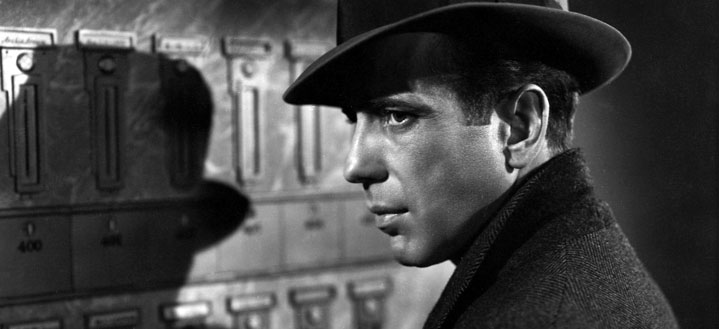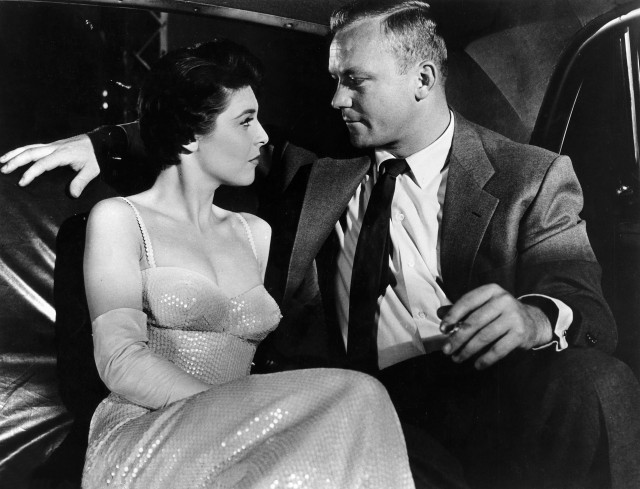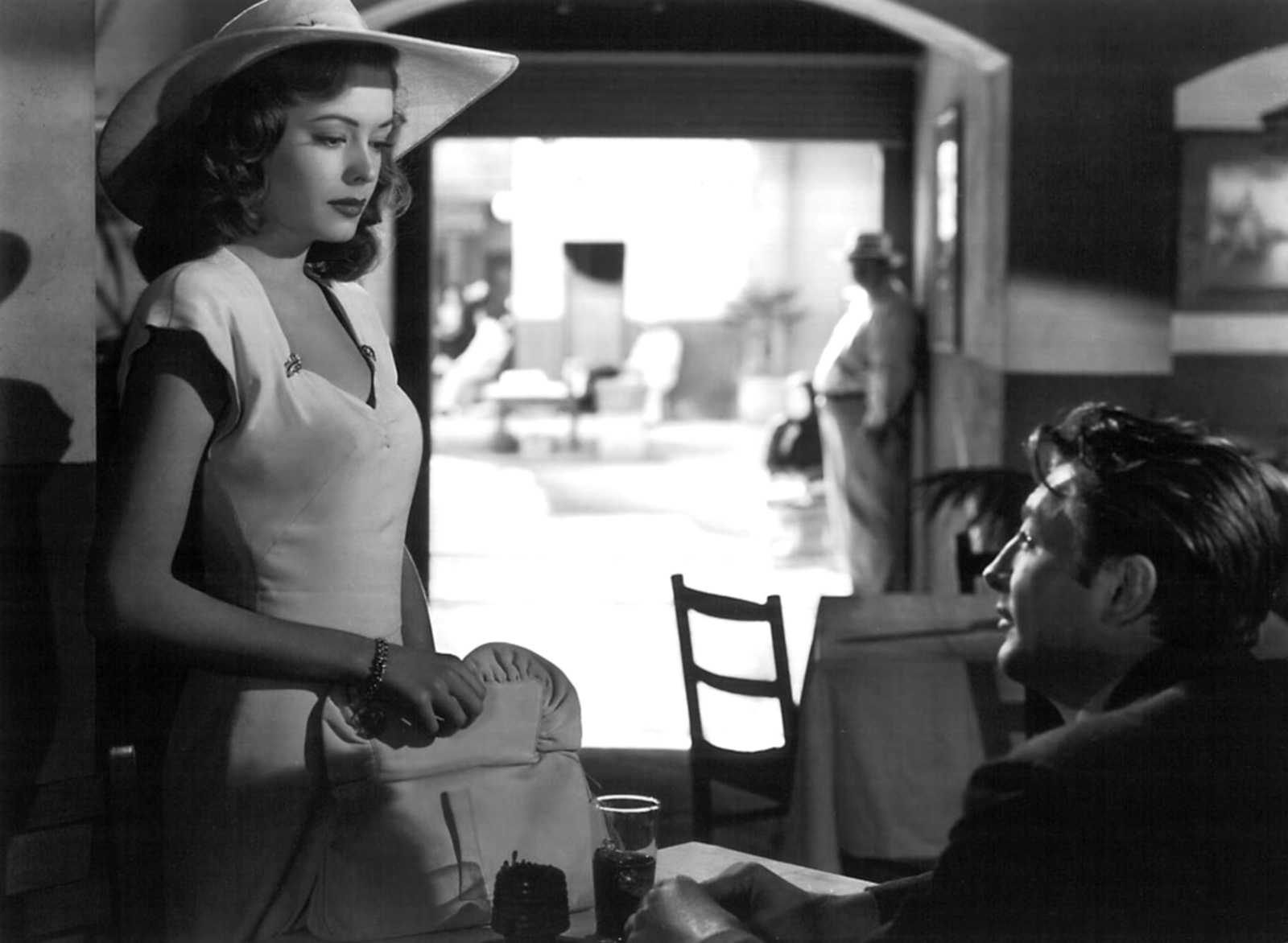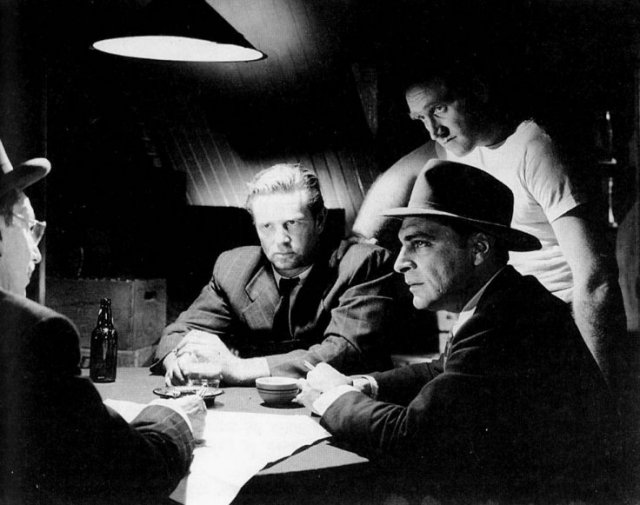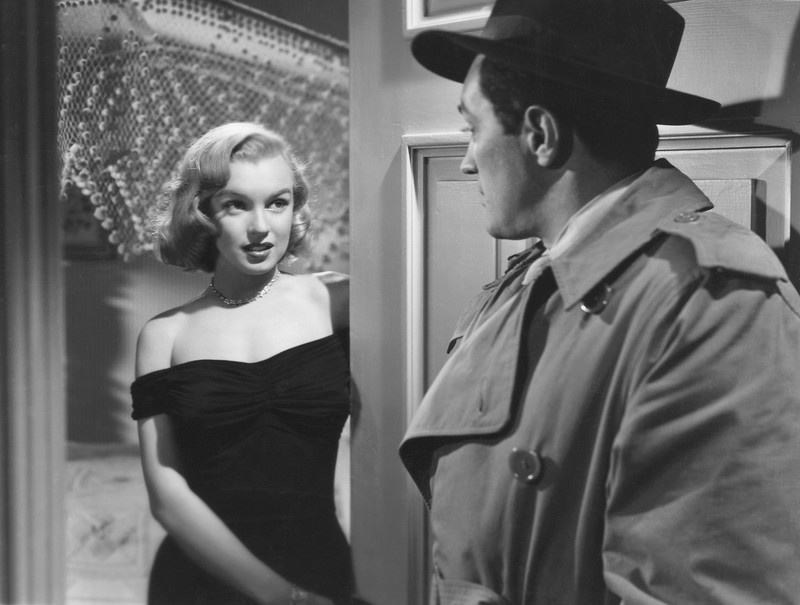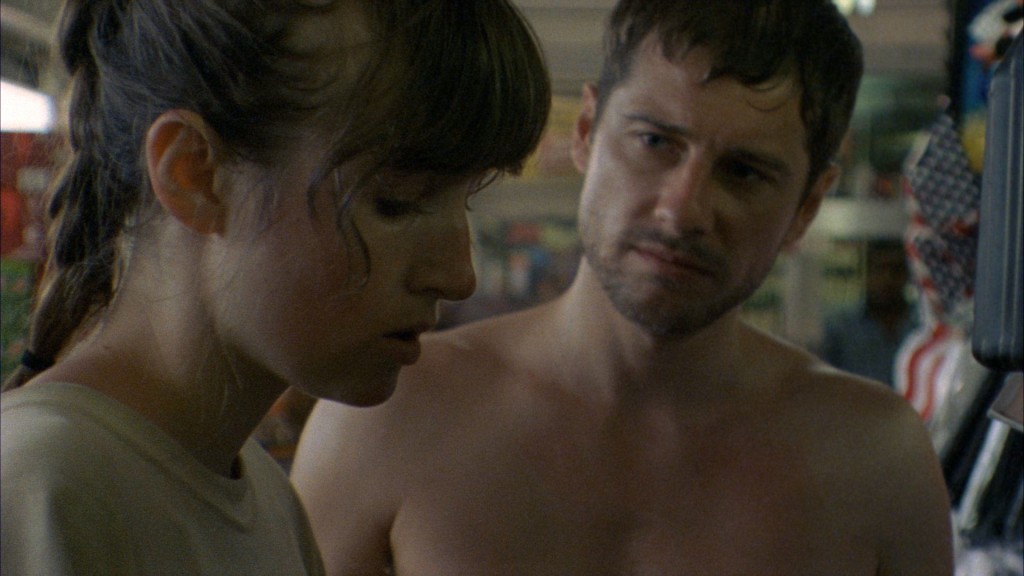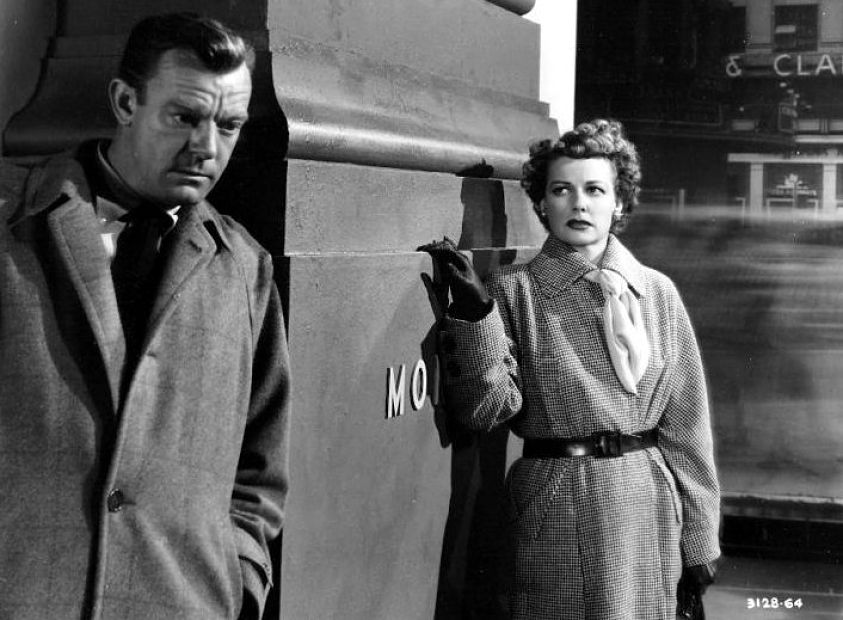
On Friday night, June 5, Turner Classic Movies is presenting one of my Overlooked Noir, in its wonderful film noir series Summer of Darkness. The character-driven thriller Woman on the Run (1950) is notable for its San Francisco locations, making it a veritable time capsule of the post-war City By The Bay.
The movie opens with a murder, and the one terrified witness goes underground. When the police coming looking for him, they are surprised to find his wife (Ann Sheridan) both ignorant of his whereabouts and unconcerned. While still living in the same apartment, the couple is estranged. And the wife has a Mouth On Her, much to the dismay of the detective (Robert Keith), who keeps walking into a torrent of sass.
But soon the wife starts hunting hubbie, along with the cops, a reporter (Dennis O’Keefe) and the killer. It’s a race to see who can find him first. One character is revealed to be more dangerous than was apparent, and the audience learns this before our heroine does.
One quirky nugget – when she visits his workplace, we learn that his job is making mannikins in the basement of a large department store.
Sheridan is great in this uncharacteristically insolent role. So are O’Keefe and Keith. But the real star of Woman on the Run is San Francisco itself, from the hilly neighborhoods to the bustling streets to the dank and foreboding waterfront. Oddly, the finale is at an amusement park which seems to be Playland At the Beach (but was actually filmed at the Santa Monica Pier). (Further trivia – that Laffing Sal is the one at Santa Monica, not the one at Playland which now resides at the Santa Cruz Beach Boardwalk.) The only movie that rivals Woman on Run for its depiction of San Francisco in the 1950s is The Lineup.
The story is a taut 77 minutes of mouthy Ann Sheridan, the life-or-death manhunt and stellar period San Francisco. Woman on the Run is available on DVD from Netflix and streaming from Amazon Instant Video (free with Amazon Prime).
